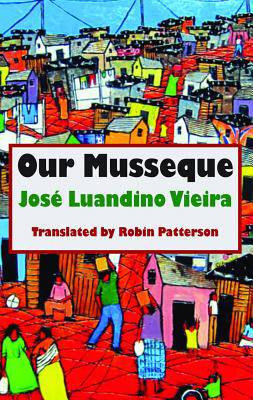
- Afhalen na 1 uur in een winkel met voorraad
- Gratis thuislevering in België vanaf € 30
- Ruim aanbod met 7 miljoen producten
- Afhalen na 1 uur in een winkel met voorraad
- Gratis thuislevering in België vanaf € 30
- Ruim aanbod met 7 miljoen producten
Zoeken
Omschrijving
Our Musseque is a tale of growing up in one of the vibrant shanty towns (musseques) of Luanda during the 1940s and 1950s. Weaving back and forwards through his half-remembered childhood, the narrator draws us into a close-knit world of labourers, shopkeepers, drunks, prostitutes and determined women battling to bring up their families, as Angola hurtles towards the beginning of its armed struggle against Portuguese colonial rule. Meanwhile the children laugh, play, squabble and fight, puzzle at racial taunts and move rapidly through adolescence towards sexual awakening and a greater awareness of political realities around them. Written in prison in 1961-62 but not published until over 40 years later, the novel is shot through with a sense of nostalgia for the lost innocence of childhood and a community swept away by the encroaching city, together with the exhilaration, hopes and fears for what is about to come.
Specificaties
Betrokkenen
- Auteur(s):
- Vertaler(s):
- Uitgeverij:
Inhoud
- Aantal bladzijden:
- 188
- Taal:
- Engels
- Reeks:
Eigenschappen
- Productcode (EAN):
- 9781910213070
- Verschijningsdatum:
- 1/08/2016
- Uitvoering:
- Paperback
- Formaat:
- Trade paperback (VS)
- Afmetingen:
- 130 mm x 203 mm
- Gewicht:
- 158 g

Alleen bij Standaard Boekhandel
+ 29 punten op je klantenkaart van Standaard Boekhandel
Beoordelingen
We publiceren alleen reviews die voldoen aan de voorwaarden voor reviews. Bekijk onze voorwaarden voor reviews.











